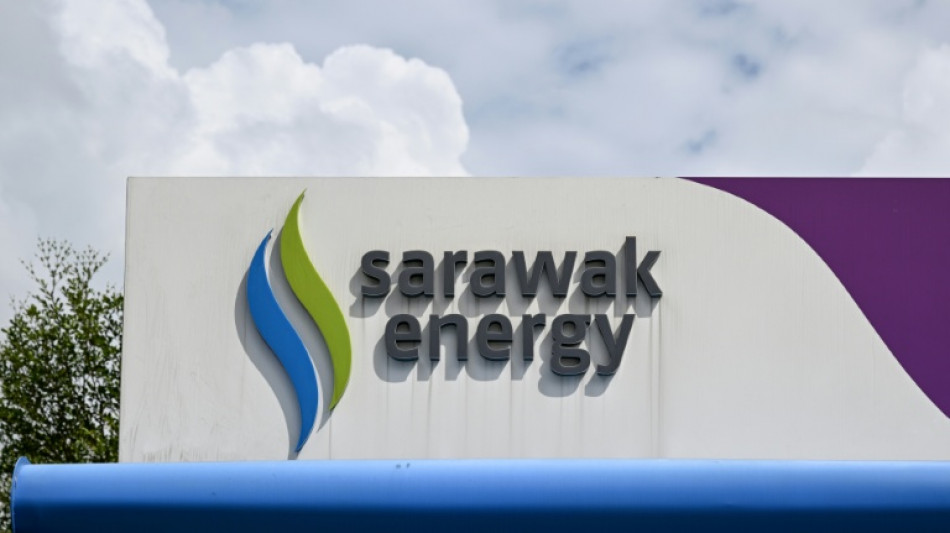
-
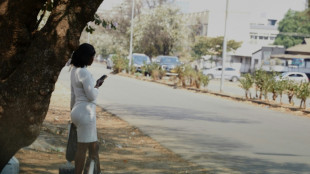 US cuts leave Zimbabwe sex workers scrambling for alternatives
US cuts leave Zimbabwe sex workers scrambling for alternatives
-
Alonso's Real Madrid revitalised for new Champions League mission

-
 Arsenal eye Champions League charge with revamped attack
Arsenal eye Champions League charge with revamped attack
-
'No regrets': wounded Nepali protesters proud at change
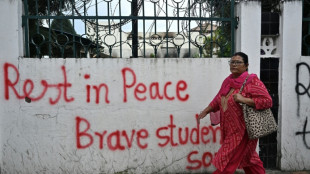
-
 Key Emmys moments: Children, Colbert, women and politics
Key Emmys moments: Children, Colbert, women and politics
-
'No regrets': wounded Nepalis protesters proud at change
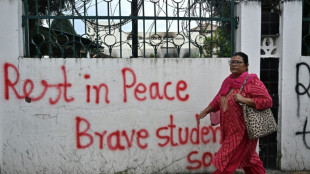
-
 'Adolescence,' 'The Studio' dominate television's Emmy Awards
'Adolescence,' 'The Studio' dominate television's Emmy Awards
-
WTO fishing deal: the net results
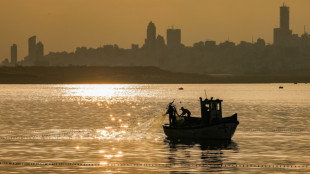
-
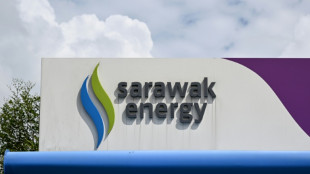 Malaysia's largest island state aims to be region's 'green battery'
Malaysia's largest island state aims to be region's 'green battery'
-
Philippines president says corruption scandal protests justified
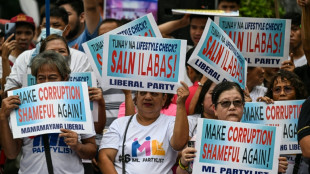
-
 Asian markets fluctuate ahead of expected US rate cut
Asian markets fluctuate ahead of expected US rate cut
-
UK aristocrat, partner face jail over baby daughter's death

-
 Japan and Fiji cruise into Pacific Nations Cup rugby final rematch
Japan and Fiji cruise into Pacific Nations Cup rugby final rematch
-
As King Charles hosts Trump, what do UK state visits entail?

-
 First-ever Tanzanian gold as Simbu dips past Petros in world marathon
First-ever Tanzanian gold as Simbu dips past Petros in world marathon
-
100 days later, US federal workers navigate post-Musk wreckage

-
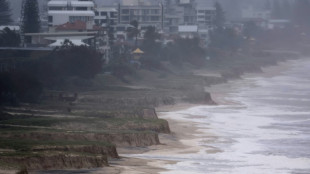 Rising oceans to threaten 1.5 million Australians by 2050: report
Rising oceans to threaten 1.5 million Australians by 2050: report
-
Kipyegon bids for fourth 1500m world gold, Wanyonyi in loaded 800m

-
 'The Studio,' 'Severance' and 'Adolescence' among Emmy winners
'The Studio,' 'Severance' and 'Adolescence' among Emmy winners
-
Trump and King Charles: heads of state with opposing personalities

-
 Scheffler surges to PGA Procore victory in Ryder Cup warm-up
Scheffler surges to PGA Procore victory in Ryder Cup warm-up
-
Bloody Sunday trial of British ex-soldier to open in Belfast

-
 Trump heads for historic second UK state visit
Trump heads for historic second UK state visit
-
Turkey court tries case that could oust opposition leadership

-
 Simbu dips past Petros for world marathon gold
Simbu dips past Petros for world marathon gold
-
Mexico's macabre Island of the Dolls inspires Tim Burton and Lady Gaga

-
 Television stars shine bright on Emmys red carpet
Television stars shine bright on Emmys red carpet
-
'The Studio' claims early win as TV's Emmys kick off

-
 Japan rips Tonga to reach Pacific Nations Cup rugby final
Japan rips Tonga to reach Pacific Nations Cup rugby final
-
Australia's ANZ bank hit with record fine over 'widespread misconduct'

-
 Eagles top Chiefs in Super Bowl rematch as Cowboys edge Giants in NFL thriller
Eagles top Chiefs in Super Bowl rematch as Cowboys edge Giants in NFL thriller
-
Liberty Supports Women-Led Businesses with Flexible Business Loan Solutions
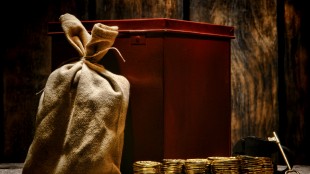
-
 Seattle's Raleigh hits 54th homer of season for MLB marks
Seattle's Raleigh hits 54th homer of season for MLB marks
-
NFL Cowboys top Giants in overtime while Lions maul Bears

-
 Trump concerned S. Korean arrests could 'frighten' investors
Trump concerned S. Korean arrests could 'frighten' investors
-
Timeless Modric opens AC Milan account with winner against Bologna

-
 Spring quick-fire hat-trick helps Racing stun Bordeaux-Begles
Spring quick-fire hat-trick helps Racing stun Bordeaux-Begles
-
Macau's first 'patriots' election sees low turnout
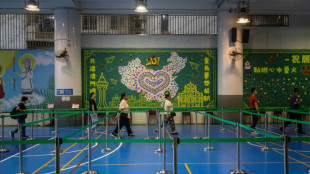
-
 Prince Harry says has 'clear conscience' over explosive memoir
Prince Harry says has 'clear conscience' over explosive memoir
-
Modric opens AC Milan account with winner against Bologna

-
 Schroeder seals Euro basketball title for world champions Germany
Schroeder seals Euro basketball title for world champions Germany
-
Hull wins LPGA Queen City title after Jeeno four-putt bogey at 18

-
 Spain's political class spars over chaotic Vuelta finale
Spain's political class spars over chaotic Vuelta finale
-
Top four into Women's Rugby World Cup semi-finals as France edge Ireland

-
 Two ships set sail from Greece to join Gaza aid flotilla
Two ships set sail from Greece to join Gaza aid flotilla
-
Amorim won't change despite 'suffering' in dismal Man Utd run

-
 No handshakes as India beat Pakistan in Asia Cup T20
No handshakes as India beat Pakistan in Asia Cup T20
-
Australia stunned by Belgium, joining USA on Davis Cup scrapheap

-
 Spinners power India to win over Pakistan in Asia Cup
Spinners power India to win over Pakistan in Asia Cup
-
Bolsonaro conviction 'not a witch hunt,' Lula tells Trump in NYT op-ed


Malaysia's largest island state aims to be region's 'green battery'
Malaysia's verdant, river-crossed state of Sarawak is charging ahead with plans to become a regional "green battery," but its renewable energy dreams could come at serious environmental cost, experts warn.
Wedged between peninsular Malaysia, Indonesia, Singapore and the Philippines, Sarawak's leadership believes it could become a keystone in a regional energy transition.
Its many rivers and streams offer potentially abundant hydro-electricity and could one day power production of green hydrogen.
It is also installing solar and touting biomass to grow its renewable capacity, with Premier Abang Johari Tun Openg telling investors in Europe last week the state is "committed to a low-carbon and sustainable energy future".
But environmental groups warn much of this green energy infrastructure contributes to deforestation and the displacement of Indigenous groups.
And for now, Sarawak's main export is a fossil fuel: liquefied natural gas.
- Harnessing hydro power -
Sarawak began generating hydroelectricity several decades ago, and is currently building a fourth hydro-power plant.
They currently account for around 3,500 megawatts -- enough to light about two to three million Southeast Asian households daily.
Its first floating solar field is already producing around 50 megawatts, and more than a dozen others are planned, Chen Shiun, senior vice president of Sarawak Energy Corporation, told AFP.
With a population of fewer than three million, the huge potential energy surplus is obvious, he said.
By 2030, Sarawak aims to generate around 10,000 megawatts, mostly from hydropower, with solar and natural gas contributing.
It wants to supply neighbouring Sabah state and Brunei, and potentially mainland Malaysia, Singapore and the Philippines.
The state's ambitions are "bold and promising," and send "a strong signal for accelerating the region's energy transition," Shabrina Nadhila, an Asia analyst at energy think-tank Ember, told AFP.
- 'Good example' -
Southeast Asia's power demands have more than doubled in the last decade, and will only grow further as the expanding middle class installs air conditioning and energy-hungry data centres emerge.
Kuala Lumpur is hoping the growing demand will re-energise a long-mooted electricity grid connecting members of the 10-country Association of Southeast Asian Nations (ASEAN).
"Sarawak is a good example that we can learn from, especially when we talk about the APG (ASEAN Power Grid)," top Malaysian energy official Zaidi Mohd Karli told AFP.
Already, a 128-kilometre (80-mile) cross-border electricity connection is bringing hydropower from Sarawak to neighbouring Indonesia.
The state is also learning from other ASEAN countries such as Laos, which launched a similar hydro-powered plan in February, aiming to exchange around 1,500 megawatts of electricity with China by next year.
- Environmental fears -
But the state's grand aspirations remain dogged by environmental concerns over the destruction of ancient tropical rainforests for hydropower construction and timber logging.
"Although Sarawak has the lowest emissions grade factor by far of any state in Malaysia, it also has the largest rate of deforestation," Adam Farhan, of environmental watchdog RimbaWatch, told AFP.
"A large part of that can be attributed to hydropower."
More than 9,000 Indigenous people were relocated from Bakun to make space for one of Southeast Asia's largest dams, commissioned in 2011.
Almost 70,000 hectares -- an area about the size of Singapore -- of forest ecosystem was flooded, according to several environmental organisations and academic studies.
Relocation and compensation issues continue even today and there are fears of repeat scenarios and exclusion of local communities as new hydropower projects launch elsewhere, environmental groups said.
"The expansion of large hydropower infrastructure in Sarawak raises important environmental and social concerns," Ember's Nadhila said.
"To address these challenges, it is crucial to enforce strict and comprehensive environmental and social safeguards," she warned.
Farhan from RimbaWatch added: "Sarawak needs to do a lot more to sort out its Indigenous rights issues and its deforestation issues before I think it could call itself a 'green battery' for Southeast Asia."
J.Williams--AMWN